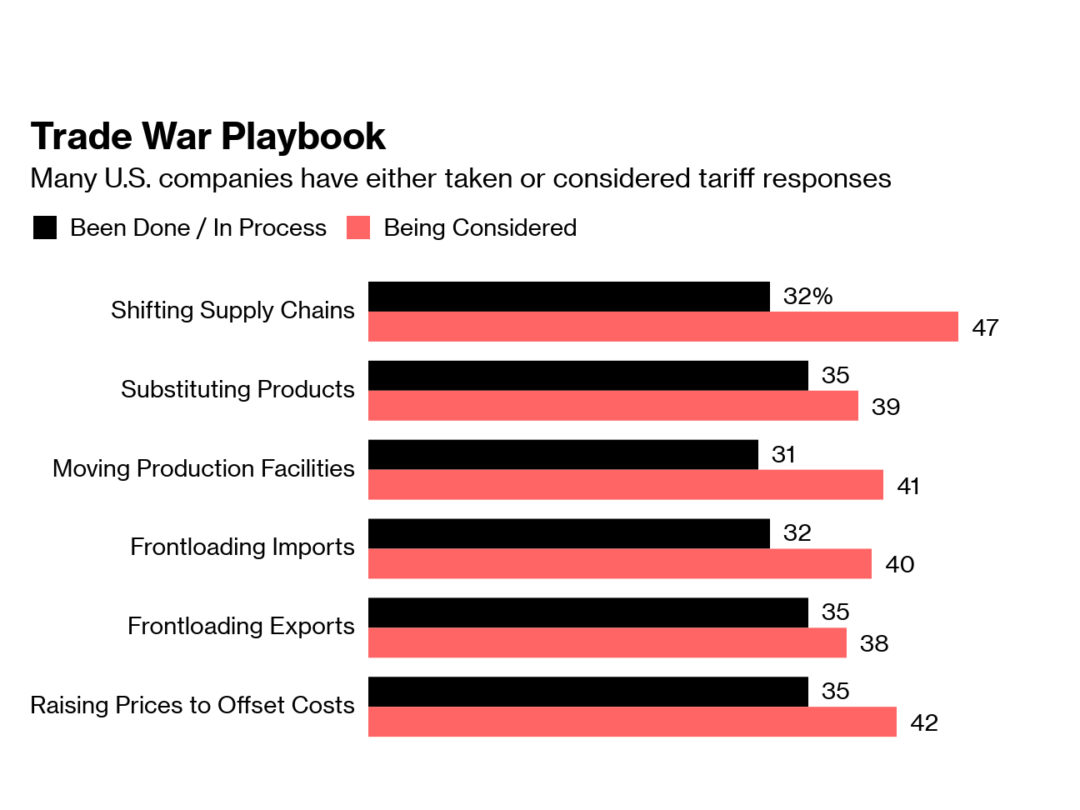
Visit Our Sponsors |
|
|
|
|
|
|
|
|
|
|
|
|
|
|
|
|
|
|
|
|
|
|
|
|
|
|
|
|
|
|
|
|
|
|
|
|
|
|
|
|
|
|
|
|
|
|
|
|
|
|
|
|
|
|
|
|
|
|
|

With the U.S. and China starting a fresh round of trade talks this week, a new survey showed more American executives see their businesses gaining from a potential increase in tariffs than being hurt by it.
About 59 percent of some 500 firms said they expected profits to benefit should tariffs on imports rise, more than double those who saw a negative impact, according to a UBS Group AG survey released this month. An increase in domestic investment was listed as one key area of advantage should the cost of doing businesses abroad grow.
"Executives may be overly optimistic but this does support our view that tariffs create the potential for both winners and losers," chief U.S. equity strategist Keith Parker wrote in a note Monday. The survey was conducted during the fourth-quarter equity sell-off.
The stock market has been dancing to the tune to trade talks as investors monitor efforts from the world’s two largest economies to prevent an escalation with the March 1 deadline approaching. If there’s no deal by then, President Donald Trump has threatened to more than double the rate of tariffs on $200bn in Chinese imports.
Companies are getting ready for a lapse in negotiations. In the UBS survey, 75 percent of respondents said they have already taken at least one action in response, such as raising prices to offset higher costs, shifting supply chains and pulling orders forward to get ahead of potential tariffs.
Bank of America kept track of conference calls by S&P 500 companies on the trade impact and found that half of those that mentioned the issue said their businesses would be hurt. Many of them, however, have baked a potential hike in tariffs into their outlook “for conservatism,” according to strategists led by Savita Subramanian.
Such moves are “suggesting some upside risk if more amicable resolution is reached,” the strategists wrote in a note Monday.
While tech and industrial shares are viewed by some investors among the most vulnerable to growing trade tensions, executives are more sanguine. In fact, that group was the most positive on the impact of tariffs, saying they expected profit margins to expand, helped by higher prices and demand because of a likely boost to investments, according to the UBS survey. Respondents from the energy industry were the most negative.
The survey broke down the firms into four categories by sales and found that bigger companies were more optimistic on the impact of tariffs than smaller ones. That’s contrary to market worries that large, multinational conglomerates will suffer more in a protectionist trade environment.
RELATED CONTENT
RELATED VIDEOS
Timely, incisive articles delivered directly to your inbox.


